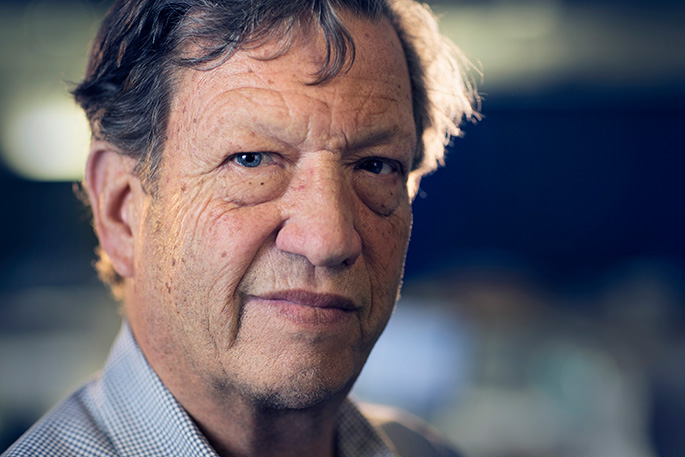A big congratulations to Professor Gordian Fulde on receiving the prestigious Senior Australian of the Year award.
Professor Fuld, 67, he is the longest-serving head of an emergency department in Australia, dedicating three decades of his career to St Vincent’s and Sydney Hospital.
Accepting the award, Professor Fulde said, “As a young person would say, ‘OMG'”.
Sydney Hospital’s location has meant that it is too often the last stop of the night for people who have partied a little too hard in the city, but it also sees a regular influx of drug addicts, bashing victims and the homeless.
Having spent so long on the frontline, Professor Fulde has seen the worst of drug and alcohol fueled violence, including the ice epidemic.
His face has been seen on TV on both Kings Cross ER and Inside Story, but he also makes regular appearances among community groups and schools to share his stories about working in what the Australian of the Year site labelled “an urban war zone”, and warning against binge drinking and drug abuse.
After 2012, when 18-year-old Thomas Kelly was coward-punched and killed, Professor Fulde was sought out by Thomas’ father Ralph Kelly to reside on the Thomas Kelly Youth Foundation’s Board.
He became a central figure in the push for lock-out laws in Kings Cross after the young man’s tragic, and preventable, death.
Professor Fulde said he has finally begun to see change in our society.
After a quieter-than-usual New Year’s Eve, he told Fairfax Media earlier this month that, “It would appear the message is finally getting through”.
“We have realised as a society you don’t have to be totally drunk and ugly to enjoy some of the most fabulous fireworks in the world,” he said.
He said the reduction in the number of severe head injuries since the lock-out laws were introduced was “spectacular and terrific”.
Despite the decrease in punch-related injuries, St Vincent is still a busy hospital – Professor Fulde presides over the ER from midnight until dawn.
He said the worst part of his job was treating a critically ill patient who comes in conscious doesn’t make it.
“You are able to talk to them, make human contact with them, and in spite of whatever you do for them, they die. That’s as tough as it gets. When children die, it’s just beyond description,” he said.
Congratulations Professor Fulde – thank you for all you have for every individual you have helped and for Australia as a whole.




















Add Comment